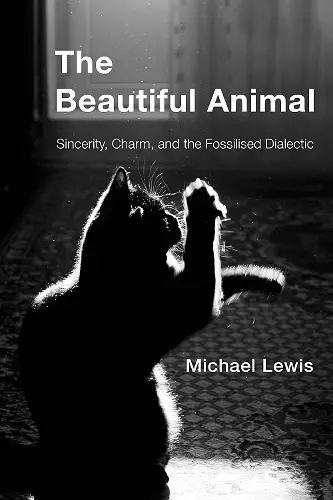The Beautiful Animal
Sincerity, Charm, and the Fossilised Dialectic
Format:Paperback
Publisher:Rowman & Littlefield International
Published:18th May '18
Currently unavailable, and unfortunately no date known when it will be back
This paperback is available in another edition too:
- Hardback£113.00(9781786607546)

Can philosophy conceive of a perfect animal? Can it think of the animal as anything other than an imperfect human? The book attempts to rethink the Hegelian dialectic so as to render it capable of assigning a proper place to the animal, and in particular the beautiful animal, and to rework the philosophy of nature so as to encompass the fossil. The fossil itself teaches philosophy and in particular the dialectic how it must modify itself in order to encompass the beautiful animal, in the form of what we term the fossilised dialectic, resistant to the spiritualisation which will always leave the animal behind. If philosophy can admit the animal in this way, we might then ask what philosophy can learn from this animal that will have taken up residence in its home? What does a specifically domestic animal teach us? At the very least, it shows us that the function we give to the furnishings of the house is not the only one and perhaps therefore that there is no single unique function. In this way, animals teach us the most philosophical lesson there is: to see the world as it is in itself.
Until now animal philosophy has tended to pass over a crucial dimension of experience: the beauty of animals. Michael Lewis’s new book wonderfully reawakens us to that crucial dimension. With historical sensitivity and dialectical precision, Lewis guides his reader through a complex tradition of continental thought in animal aesthetics and ultimately helps us to ask the questions that the beauty of animals poses about the nature of philosophy itself. -- Thomas Greaves, Senior Lecturer in Philosophy at the University of East Anglia
This beautiful book asks an entirely novel question: how can philosophy think the animal so as to be able to conceive of its beauty? Being successful with this task also means overcoming our own alienation from nature. Through the strangeness of the animal which proves its special charm, we learn to see philosophy anew: with and beyond Kant and Hegel. -- Tanja Staehler, Professor of European Philosophy, University of Sussex
The analysis of beauty and charm in animals, drawn from the margins of philosophy to the very core of the structure of our thinking, is a brilliant invention based on an original concept of the “fossilized dialectics” to which the gaze of the animal, previously ignored by philosophers, but estimated by poets such as Rilke or Baudelaire, becomes a witness. A cat philosophy, speaking seriously, reinvents such philosophical categories and oppositions as the good and the “bad” infinite, the two kinds of immortality, the beautiful and the ugly, and reconsiders the fundamental problems of life, death and undeath. -- Oxana Timofeeva, Associate Professor in the Department of Political Science and Sociology at the European University of St. Petersburg; Senior research fellow at the Russian Academy of Science
ISBN: 9781786607553
Dimensions: 230mm x 151mm x 15mm
Weight: 349g
242 pages